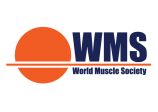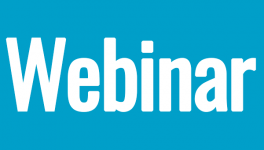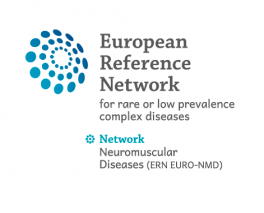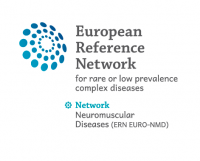|
Newsletter - May 2020 ͏ ͏ ͏ ͏ ͏ ͏ ͏ ͏ ͏ ͏ ͏ ͏ ͏ ͏ ͏ ͏ ͏ ͏ ͏ ͏ ͏ ͏ ͏ ͏ ͏ ͏ ͏ ͏ ͏ ͏ ͏ ͏ ͏ ͏ ͏ ͏ ͏ ͏ ͏ ͏ ͏ ͏ ͏ ͏ ͏ ͏ ͏ ͏ ͏ ͏ ͏ ͏ ͏ ͏ ͏ ͏ ͏ ͏ ͏ ͏ ͏ ͏ ͏ ͏ ͏ ͏ ͏ ͏ ͏ ͏ ͏ ͏ ͏ ͏ ͏ ͏ ͏ ͏ ͏ ͏ ͏ ͏ ͏ ͏ ͏ ͏ ͏ ͏ ͏ ͏ ͏ ͏ ͏ ͏ ͏ ͏ ͏ ͏ ͏ ͏ ͏ ͏ ͏ ͏ ͏ ͏ ͏ ͏ ͏ ͏ ͏ ͏ ͏ ͏ ͏ ͏ ͏ ͏ ͏ ͏ ͏ ͏ ͏ ͏ ͏ ͏ ͏ ͏ ͏ ͏ ͏ ͏ ͏ ͏ ͏ ͏ ͏ ͏ ͏ ͏ ͏ ͏ ͏ ͏ ͏ ͏ ͏ ͏ ͏ ͏ ͏ ͏ ͏ ͏ ͏ ͏ ͏ ͏ ͏ ͏ ͏ ͏ ͏ ͏ ͏ ͏ ͏ ͏ ͏ ͏ ͏ ͏ ͏ ͏ ͏ ͏ ͏ ͏ ͏
|
| |
World Muscle Society updates COVID-19 position & advice

| |
The World Muscle Society released its latest update of recommendations on 11th May.
The WMS' recommendations apply to numerous neuromuscular disorders and therefore should be seen as recommendations that apply generally. They are designed primarily for patients, carers, general neurologists and non-specialist medical providers. They are also intended to inform neuromuscular specialists particularly regarding frequently asked questions and basic service requirements.
Please note: Covid-19 is a rapidly evolving field. The advice in their document is subject to revision every 3 days. The best way to ensure you have the most up to date document is to download it directly from the WMS website.
|
|
|
|
|
| |
Webinar - Management of Cardiac Involvement in Genetic Myopathies now available to watch again
| |

|
Our latest webinar has just been made available to stream from our website.
Management of Cardiac Involvement in Genetic Myopathies was delivered Karim Wahbi who is Professor of Cardiology at the University of Paris, France and head of the reference centre for neuromuscular cardiomyopathies in Cochin Hospital, Paris.
This webinar gives a global overview of cardiovascular involvement in neuromuscular conditions, its impact on patient prognosis and the potential preventives approaches that can be implemented. A number of specific neuromuscular cardiomyopathies will be presented in detail, including those observed in patients with Duchenne muscular dystrophy, myotonic dystrophy type 1 and laminopathies.
We are steadily building up a series of relevant webinars and always ensure that they can be viewed at a later date by those of you would are unable to attend at the time.
|
|
|
|
|
| |
EURO-NMD online board meeting July 2020

| |
As is rapidly becoming the new normal, our board and network group meetings which are scheduled for this coming July will be held online.
We have just got in touch with all of you who are connected with the network with further details of the meetings and information about how to register.
Please note: the closing date for registrations is 30th June to allow us to organise the logistical aspects of our online meetings.
|
|
|
|
|
| |
DG Sante webinar series update
| |

|
On 2nd June 17:00 (CET) DG Sante will host two webinars in the context of COVID-19 pandemic and launching of the ‘COVID-19 Clinical Management Support System’.
1 - Surge ICU response and clinical aspects and management - Prof. Maurizio Cecconi
2 - Ethics and family involvement during a pandemic - Prof. Jozef Kesecioglu
These webinars will be delivered by Prof. Maurizio Cecconi, President Elect of the European Society of Intensive Care Medicine and Head of Department Anaesthesia and Intensive Care Units, Humanitas Research Hospital, Lombardy in Italy, and by Prof. Jozef Kesecioglu, President of the European Society of Intensive Care Medicine, expert on ethics and intensive care, Head of Intensive Care Centre of the University Medical Centre of Utrecht in The Netherlands.
These webinars are available to anyone who would wish to attend.
|
|
|
|
|
| |
The position of neuromuscular patients in Shared-Decision-Making

| |
ENMC highlights workshop reportIn 2018, ENMC held a special workshop on how to involve patients more in the decision making about research and care management of neuromuscular conditions. The ENMC White paper resulting from this meeting came out just when the Corona crisis started, understandably at this time all focus was on the emerging pandemic. Given how much time and effort went in to the workshop and following report we feel the time is now right to highlight the White paper (and associated publications) once again in the hope that they will help Patient Organitions in increasing patient involvement where relevant and desirable in their own country.
|
|
|
|
|
| |
European Academy of Neurology - 6th Congress

| |
The 6th European Academy of Neurology congress took place between 23-26 May. This was the first time the congress has been held online and as such became somewhat more accessible to those who may not have been able to travel in person.
Reports from many of the congress sessions are now available on the EAN website. Additionally, all congress sessions are being made available to EAN members to view on-demand.
|
|
|
|
|
| |
AFM - COVID-19 Guidelines Available

| |
AFM have developed a series of practical guidelines that wheelchair users, caregivers and the general wider NMD community might find useful. There are four guidelines in total which provide information for caregivers at home and wheelchair users. There are also physiotherapy and respiratory tutorials that can now be downloaded.
|
|
|
|
|
| |
Macular impairment in mitochondrial diseases: a potential biomarker of disease severity
The high-energy demands of the retina are thought to contribute to its particular vulnerability to mitochondrial dysfunction. Photoreceptors are the cells with the higher oxygen consumption within the retina, and among these, the cones contain more mitochondria and have a higher energy demand than rods. A cohort of twenty-two patients with genetically-defined mitochondrial diseases (MDs) were enrolled to determine if the macula is functionally and anatomically impaired in these metabolic disorders.
|
|
|
|
| |
EMQN best practice guidelines for genetic testing in dystrophinopathies
Dystrophinopathies are X-linked diseases, including Duchenne muscular dystrophy and Becker muscular dystrophy, due to DMD gene variants. In recent years, the application of new genetic technologies and the availability of new personalised drugs have influenced diagnostic genetic testing for dystrophinopathies. Therefore, these European best practice guidelines for genetic testing in dystrophinopathies have been produced to update previous guidelines published in 2010.
|
|
|
|
| |
Boosting delivery of rare disease therapies: the IRDiRC Orphan Drug Development Guidebook
The International Rare Diseases Research Consortium (IRDiRC) has created a Guidebook to facilitate drug development for rare diseases by organizing available tools into a standardized framework. Millions of people worldwide are affected by rare diseases, but it is estimated that fewer than 5% of the known rare diseases have at least one approved pharmacotherapy.
|
|
|
|
| |
MCT8 Deficiency: The Road to Therapies for a Rare Disease
Allan-Herndon-Dudley syndrome is a rare disease caused by inactivating mutations in the SLC16A2 gene, which encodes the monocarboxylate transporter 8 (MCT8), a transmembrane transporter specific for thyroid hormones (T3 and T4). Lack of MCT8 function produces serious neurological disturbances, most likely due to impaired transport of thyroid hormones across brain barriers during development resulting in severe brain hypothyroidism. Patients also suffer from thyrotoxicity in other organs due to the presence of a high concentration of T3 in the serum.
|
|
|
|







